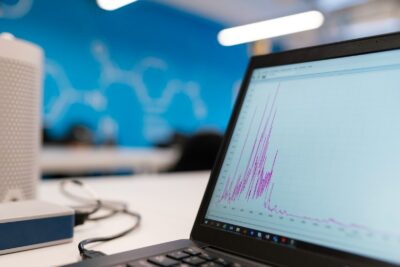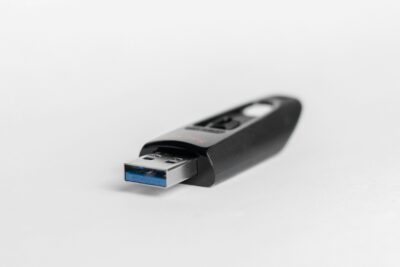Enhancing Revenue Protection and Content Distribution
AI Solutions: Safeguarding Media Assets
In the realm of media licensing agreements, the integration of Artificial Intelligence (AI) is reshaping the landscape by providing robust solutions for safeguarding intellectual property. Leveraging AI algorithms, companies can efficiently monitor and detect instances of unauthorized copying, distribution, and use of media content. This proactive approach not only safeguards the revenue streams of creators and distributors but also upholds their reputation by ensuring the integrity of their content.
AI-powered content recognition systems analyze vast amounts of data to identify copyrighted material across various online platforms. In Saudi Arabia and the UAE, companies are embracing AI technologies to automate the monitoring process, thereby reducing the risk of infringement and revenue loss. By detecting potential violations in real-time, businesses can take swift action to enforce licensing agreements and protect their intellectual property rights.
Moreover, AI-driven predictive analytics enable companies to anticipate emerging trends and patterns in media consumption behavior. This valuable insight empowers creators and distributors to adapt their strategies accordingly, ensuring that their content remains relevant and profitable in an ever-evolving digital landscape. By harnessing the power of AI, businesses can stay ahead of the curve and maintain a competitive edge in the media industry.
Blockchain Applications: Ensuring Transparency and Trust
Blockchain technology is another transformative force in the realm of media licensing agreements, offering unparalleled transparency and security in content distribution. By leveraging blockchain-based platforms, companies can create immutable records of licensing agreements, ensuring that all parties adhere to the terms and conditions outlined in the contract. This tamper-proof system instills trust and confidence among creators, distributors, and consumers alike, fostering a more equitable and efficient media ecosystem.
Smart contracts, powered by blockchain technology, automate the execution of licensing agreements, eliminating the need for intermediaries and reducing administrative overhead costs. In Riyadh and Dubai, companies are exploring blockchain applications to streamline the licensing process, enabling seamless transactions and faster revenue realization. By removing friction points in content distribution, blockchain technology unlocks new opportunities for business growth and scalability.
Furthermore, blockchain’s decentralized nature ensures that media assets are securely stored and authenticated, mitigating the risk of piracy and unauthorized use. Each transaction recorded on the blockchain is transparent and immutable, providing a verifiable audit trail of content distribution activities. This level of accountability not only deters potential infringers but also enhances the credibility and reputation of creators and distributors in the eyes of consumers.
Advanced Monitoring Capabilities
AI-powered monitoring systems offer advanced capabilities for tracking media content across a myriad of online platforms and channels. These systems utilize machine learning algorithms to continuously scan and analyze digital content, flagging potential instances of copyright infringement in real-time. By automating the monitoring process, businesses can efficiently detect unauthorized use of media assets, enabling prompt enforcement of licensing agreements. This proactive approach not only safeguards revenue streams but also mitigates the risk of reputational damage associated with unauthorized distribution of copyrighted material.
Efficient Enforcement Mechanisms
In addition to monitoring, AI technologies also facilitate the implementation of efficient enforcement mechanisms to address instances of copyright infringement. By leveraging AI-driven content recognition systems, businesses can accurately identify unauthorized use of media content and initiate targeted enforcement actions. These actions may include issuing takedown notices, imposing penalties on infringing parties, or pursuing legal recourse as necessary. By streamlining the enforcement process, AI technologies enable businesses to protect their intellectual property rights effectively while minimizing the resources required for enforcement activities.
Continuous Innovation and Adaptation
One of the key advantages of integrating AI and blockchain technologies into media licensing agreements is the ability to foster continuous innovation and adaptation. AI algorithms can analyze vast datasets to identify emerging trends and consumer preferences, enabling creators and distributors to tailor their content strategies accordingly. Similarly, blockchain platforms provide a flexible and scalable infrastructure for implementing new business models and revenue streams. By embracing a culture of innovation and adaptation, businesses can stay ahead of the curve in the dynamic media landscape, ensuring sustained growth and competitiveness in the long run.
Conclusion: Transforming the Media Landscape
The convergence of AI and blockchain technologies is revolutionizing media licensing agreements, providing innovative solutions for revenue protection and content distribution. By harnessing the power of AI algorithms and blockchain platforms, businesses can safeguard their intellectual property rights, uphold their reputation, and capitalize on new opportunities for growth. As the media landscape continues to evolve, the integration of modern technologies will play a pivotal role in shaping the future of content creation, distribution, and consumption.
—
#ModernTechnology #AISolutions #BlockchainApplications #MediaLicensing #RevenueProtection #ContentDistribution #BusinessSuccess























